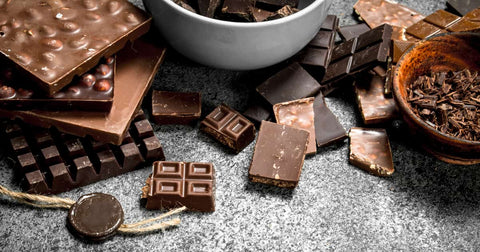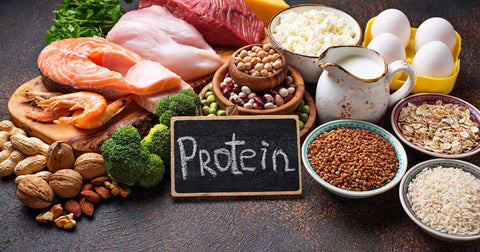Chocolate: a beloved treat for many, but could it be the secret saboteur behind your digestive woes? You've probably heard whispers about chocolate causing constipation, but the truth is a bit more nuanced. Let's delve into the science, explore how chocolate can both help and hinder digestion, and discuss the role of food intolerances.
Why Does Chocolate Cause Constipation? (The Potential Culprits)

While chocolate itself doesn't have a direct laxative or constipating effect, some of its ingredients can be problematic:
1. Milk & Sugar:
- Lactose Intolerance: Milk chocolate contains lactose, which can cause gas, bloating, and constipation for those with lactose intolerance.
- Sugar: High sugar content can draw water out of the stool, making it harder to pass.
2. Fat Content:
- Slows Digestion: Fat slows down the digestive process, potentially leading to constipation if consumed in excess.
- Dark Chocolate: Offers more cocoa solids and less milk and sugar, so it's generally less constipating than milk chocolate.
3. Caffeine:
- Dehydrating Effect: Caffeine, present in many chocolates, can lead to dehydration. Dehydration makes your stool harder and more difficult to pass.
Can Chocolate Cause Constipation? It Depends on Your Body

Your individual response to chocolate can vary greatly:
- Personal Tolerance: Some people are more sensitive to milk sugar, fat, or caffeine, making them more prone to constipation after indulging in chocolate.
- Quantity Matters: Enjoying a small amount of chocolate occasionally is unlikely to cause issues. Problems arise with overconsumption or in those with existing sensitivities.
- Underlying Conditions: If you have irritable bowel syndrome (IBS), chocolate might trigger constipation or other digestive symptoms.
Is Chocolate a Laxative? (The Surprising Twist)
Interestingly, pure cocoa (without added sugar or milk) might have a mild laxative effect for some people.
- Magnesium: Cocoa is a good source of magnesium, a mineral that helps relax muscles in your digestive tract and draw water into the intestines, easing constipation.
- Fiber: Cocoa powder contains a small amount of fiber, which promotes regular bowel movements.
- Theobromine: This compound in cocoa has a mild stimulant effect on the intestines, potentially helping with movement.
What Makes You Poop Instantly? (When Chocolate Isn't the Solution)

While chocolate isn't the answer for immediate relief, these strategies might help if you're constipated:
- Water: Drink plenty of water to soften stool and keep things moving.
- Fiber: Increase your intake of fruits, vegetables, and whole grains.
- Natural Laxatives: Prunes, prune juice, or psyllium husk can be helpful.
- Exercise: Even a brisk walk can stimulate bowel activity.
- Consult Your Doctor: If constipation is chronic or severe, seek medical advice to rule out underlying causes and get proper treatment.
Food Intolerance Testing: Your Key to Digestive Harmony

If you suspect that chocolate or other foods are causing digestive issues, a food intolerance test can be a valuable tool. It helps pinpoint specific triggers, allowing you to make informed dietary changes and improve your overall gut health.
The Takeaway
While chocolate itself isn't inherently constipating, the milk, sugar, and fat content in most chocolate products can be problematic for some individuals. Moderation, choosing dark chocolate (70% or higher cocoa content), and staying hydrated are key to enjoying this treat without digestive consequences.
Frequently Asked Questions:
1. I always get constipated after eating chocolate. Does this mean I'm allergic?
Not necessarily. While chocolate itself isn't a common allergen, its components can trigger digestive issues. The culprits are usually milk sugar (lactose) or high sugar/fat content, not the cocoa itself. A food intolerance test can help pinpoint if you have a sensitivity.
2. I've heard dark chocolate is healthier. Is it better for my digestion?
Yes, often. Dark chocolate has higher cocoa content and less sugar and milk, which makes it less likely to cause constipation than milk chocolate. However, it's still high in fat, so moderation is key.
3. Can chocolate ever help with constipation?
Interestingly, pure cocoa (unsweetened) contains magnesium and fiber, both beneficial for digestion. Some people even find it mildly laxative, but this effect is often countered by the milk and sugar in most chocolate products.
4. I have IBS. Should I avoid chocolate completely?
It depends on your individual triggers. Some people with IBS find chocolate worsens their symptoms, while others tolerate it in moderation. A food diary or food intolerance test can help you determine if it's a problem for you.
5. Q: What if I crave chocolate even though it makes me constipated?
Cravings can be tricky! First, ensure you're drinking plenty of water and eating a fiber-rich diet. If cravings persist, it's worth exploring if a hidden food intolerance might be driving the urge.


.png?v=1737390083)
.png?v=1737187409)


